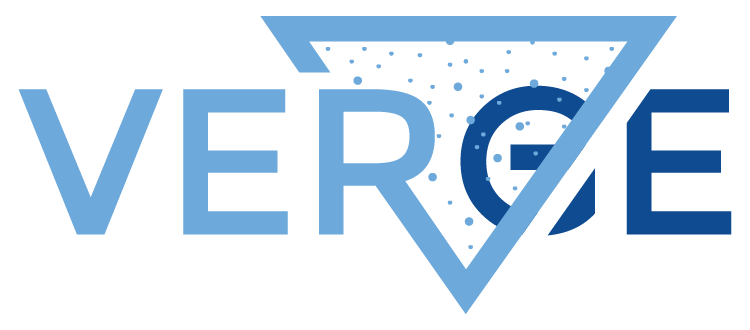Team Building and Resilience Retreats
I am very appreciative for the opportunity Dave and his team gave me to learn and heal over the past weekend in Breckenridge. The effort and enthusiastic attitude displayed inspired me to better myself both during the retreat and after. I consider myself a stereotypical southern, closed minded, mustache donning Marine. However, I felt something palpable shift during this retreat. I was a changed man after the resilience sessions. The sincere and caring demeanor displayed by the
Dave and his team throughout the weekend definitely facilitated a positive, transformational experience for myself and my teammates. Merging resilience skills, yoga, exercise, and energy sessions made for a unique and incredible experience that I’ve never before experienced.
S.Y. USMC Veteran
I was sitting in a cabin located in one of the most surreal environments I’ve been in,
with some of the greatest men I’ve had the pleasure of serving with. I felt extremely
welcomed and privileged to be in the company of the Dave and his team. The
professionalism, knowledge and sincerity that they brought with them made the
weekend what it was. Dave’s experience, confidence and knowledge made
the resiliency sessions easy to engage in and understand, which, in turn, made it practicable.
The time, energy and sacrifice Dave and his team made just to enhance my well being is
something I will forever be grateful for. If an opportunity like this presents itself to you, jump on it, seriously. I left Colorado with a positive hangover, refreshed,
energized, and with a new perspective on life. Just as important, I left equipped with
new tools to deal with life and it’s continuous curveballs.
A.V. USMC Veteran
There comes a time when an individual has to take ownership of his or herself. When that time comes, a retreat like the one Dave and his team hosted is priceless. During the weekend, I had the opportunity to join a group of warriors that I will always have a bond with that many will never know. We laughed, cried, learned and volunteered. We made awesome memories. This opportunity was even more special because we had the privilege of spending time
with three heroes–Dave and his teammates–who sacrificed their time to support us. Wow!
So with that, I want to give them a big hug and a “Thank you.” I truly hope that other
teams will have the opportunity to share in magic of this retreat experience.
B.S. USMC Veteran
I used to say, “Team chemistry is a problem.” Now I say, “Team dynamics were a problem.” I changed my vernacular because Dave brought us together, a dysfunctional executive team, and tweaked the way we see each other and our relationships to one another. During the retreat, we surfaced some tough subjects, and things even got heated once or twice. Dave masterfully facilitated the discussions and managed the heat in the room. We left with a new understanding of each other’s positions and renewed energy to see our strategic plans to their completion.
P.P. (Grecian Delight)
Human and Social Capital Consulting and Coaching Testimonials
Dave brought us into the 21st century with his unique brand of HR consulting. We had such high turnover, losing good people to competitors left and right, hiring the wrong people, etc. He came in and showed us how to craft a total rewards package tied to a performance management system that actually works. And everyone had a say, which is novel. The big consulting firms talk about bottom-up change, but that usually means bringing in the lowest-ranking VPs, and their initiatives invariably fail. Dave walks the talk. He also taught us about structure and the importance of relationships and how to use a simple rules strategy to build relationships not destroy them. I mean, these policies are revamping the way we do business.
J.D. (Cap City)
When I first hired Dave as an executive coach, he naturally asked me about my business and what some of my pressing concerns were. I’d purchased a small company in Europe to augment our business in the US, but for 3 years the company produced nothing. It was a big sink hole, but I felt that we’d come this far and couldn’t quit now. Dave asked about our HR department and how they handled decision-making and counterbias training for execs and managers. Naturally, we had none of that stuff. Long story short, through Dave’s patient tutelage, we discovered that a collective sunk-cost fallacy was holding us locked in place. We should have divested of that company long before we did. Moreover, many of those same biases were breaking down relationships inside our US office and even between our company and our clients. We weren’t giving each other the constructive feedback we needed to overcome our biases. We judged each other but rarely listened to each other. I never knew HR–or human and social capital as we now refer to it–could be so powerful. A rising tide lifts all ships, they say. That’s what effective HR policies are supposed to do. Thanks!
C.R. (Rosenberg and Parker)
Dave touts a strategy of better sensemaking, which leads to both more and better options to explore for how we might do business differently in the future. Exploit what works, but continuously explore for new options, and then devise safe relevant experiments in the field and adjust decisions based on the feedback. Through Dave’s human capital / social capital coaching, we were better able to engage the staff, who then felt more empowered to float those experimental ideas up. In just one of our car washes, this amounted to a 10% increase in the number of cars we were pushing through on a daily basis. Just one simple experiment in just one of our 12K tunnels helped us reimagine our business model.
G.D. (Atlantic Street Capital)
Organizational Health and Organizational Transformation Testimonials
Hi Dave –
I lead the *** team at Google, and I wanted to thank you for taking the time to talk to us on Tuesday. The topic (effecting change) is very relevant to us, and you were incredibly effective at connecting theory and practice in a way that was digestible for the team. You were also able to foster an active discussion with the group. That isn’t always easy, and an upbeat interactive session was something that the team really needed during a these challenging times.
Thank you again for your time. It was time well spent for our team!
R.W. (Google)
Dave,
Having you at the event and your workshop on organizational health and transformation was the highlight of the retreat. I knew folks would enjoy it and take something away, but the response / energy exceeded my expectations. Your comments were sighted throughout our working sessions the rest of the retreat, and individually I heard from just about everyone… fired up and ready to bust through that door.
We’ve still got a long way to go to reach our goals as a company… and this managers retreat will prove to be a major demarcation point for us, and you were a catalyst in that effort. I’m very grateful.
I.D. (Enservco)
Hi Dave!
Drum Roll Please….
First — by the numbers
- 4.6/5 for overall satisfaction with the training event
- 4.4/5 for training content satisfaction
- 5/5 for facilitator and presentation quality (they loved you!)
Then — what people said:
- David’s talk was inspiring and informative. It was wonderful to hear how real-world learnings could be applied in our industry
- Dave was amazing and inspirational. I think he shared a lot of meaningful content that can be implemented into all aspects of work and personal life.
- I really enjoyed that he got the team involved and pushed us to find the answers rather than just lecture on how to think and react.
- So great to get a different perspective on change management, with clear transferrable strategies/tools to our team’s work.
- Loved the approachable friendly style of Dave.
- Dave’s transformational change frameworks were clear and unique. They represented a fresh view on familiar topics.
Finally — the appreciation parade!
- Dave – thanks for taking the time to speak with us earlier. Your framework and anecdotes were valuable educational tools for me and my team. Although these are challenging times, it was great to take a break from our day-to-day work to learn something new. Thanks again!
- Thank you Dave for sharing your time with us on this important topic (and also on your life learnings) – I hope we hear more from you in the future!
- Thank you, Dave. I learned a ton from our hour together. Very much appreciate you sharing your perspective with us.
- Dave, thank you for your courage, wisdom and inspiration! We are so fortunate to learn from heroes such as yourself. Your story taught us great learnings!
- Dave, you were wonderful. I think now was an ideal time to talk about change and how to effectively implement and react to it. I would love to hear from you again in an extended training and learn more on all the valuable lesson you have to share whether about effective change or other leadership qualities.
- David, thank you for sharing your wisdom with you! You have a truly remarkable story to share – thank you for your public service!
- Dave, thanks so much for joining us the other day. As a former service member having recently moved out the Bay Area, it’s very refreshing to have someone such as yourself come in and sprinkle some military lessons in a corporate environment. I’ve felt so far removed from that life over the past year and it was great listening to some of the lessons you learned throughout your career. Hope to see you again!
- Dave, thank you so much for sharing your wisdom and experience with us. It was really enlightening to think about “effective change” from a new perspective, and I came away from the training with a few new strategies I’m excited to try out in my day-to-day work.
Dave — needless to say. This training was a hit. Thank you not only for gracing us with your presence, knowledge and experience….but also for substantially boosting my street cred on the team. I am incredibly grateful.
H.W. (Google)
Team Building and Leadership Testimonials
I just wanted to extend an additional thank you. As I mentioned at the end of today, I thought this workshop was incredibly beneficial, informative, and well worth my time. You provided tangible leadership skills that I will directly implement moving forward. Additionally, I appreciate the vulnerability you exhibited while talking through the lessons learned from your successes and mistakes in the past. I humbly ask that you continue to teach this workshop in the manner that it was taught this week. We need need more of this and less of the generic consulting courses that we are obligated to participate in right now. Consider me your advocate. I feel fortunate to have been able to partake.
Take care,
J (US Navy SEAL)
Dave,
I thoroughly enjoyed Sunday evening’s presentation, but it was the one you gave on the boat the next morning which impacted me even more on personal and professional level. As I walk through some changes in my own life, I know the other side of my ‘door’ is tame in comparison to what was on the other side of yours. But the analogy and your message was incredibly impactful.
Thank you again— for everything.
V.S. (Bank of America)
Mr. Cooper,
Thank you again for coming to Brandywine Heights to speak to our faculty and staff! I’ve heard nothing but excellent feedback on your visit, and my staff said they were “energized” by your leadership message.
B.P.
Business Manager/Board Secretary
Brandywine Heights Area School District
You are a star!
S.W. (Lincoln Leadership Institute)
Dear Dave,
On behalf of all my colleagues at Holocene, thank you for a terrific talk today. Everyone was so impressed by your experience and wealth of advice. Your insights on leadership, teamwork, communication, discipline and respect were interesting and applicable to all. “Change only comes with some discomfort” particularly resonated with me, as well as your story about the uniform and “doing the right thing” (a motto I try to drill into my children’s’ brains). I hope my colleagues and I incorporate some of your ideas into our culture.
Regards,
J.D. (Holocene Advisors LP)
Dave,
Thank you for coming out and sharing your humility and leadership with my team. They have been on a “high” all week after being part of your excellent presentation. You were so incredibly impactful, and it means a lot to me and them.
Thanks again. I’m sure I’ll be in touch in the future.
S.E. (Centura Health)
Executive, Executive Team, and Management Team Testimonials
Overall, I think the content being provided to us is incredibly valuable. And you are delivering it in a palatable fashion which is easier to digest with our current demanding work loads, which is great.
The conversations taking place around the table have vastly improved and I think we have good momentum going forward. I’m encouraged and look forward to continuing learning and discussing with you and the team.
E.H. (Calusa Casino)
Hey Dave. Just wanted to thank you again for taking the time to come in and work with us. The time you spent with our players and staff had an enormous impact and will really help us grow as individuals, as a team and as an organization. I hope that you enjoyed the trip and were able to take something away from it. Hopefully, at a minimum, we can continue the dialogue as we strive to develop as a high performing team, organization, and culture. In the meantime, please let us know if we can ever assist you with anything.
Also, I’m not sure I specifically mentioned it while you were here, but I wanted to thank you for your long and distinguished service career. I am profoundly grateful for all of the sacrifices you’ve made and hardships you’ve endured on behalf of our country. We are all very lucky to have you and your teammates defending our interests and freedoms.
With sincere respect and appreciation,
C.A. (Cleveland Guardians)
Emotional Brilliance: Creating A No Fail Culture, with David Cooper, US Navy SEAL (Retired)
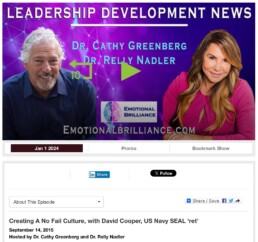
As the President and Co-founder of Karakoram Group (KG), David Cooper brings the highest level of special operations counter-terrorism and anti-terrorism experience to bear on strategic global security issues, blending a mix of data-driven and experience-driven enterprise risk management and risk leadership practices. As a former US NAVY SEAL and the senior operator for one of our nations’ premier special operations units, Dave spent over a decade not only pursuing some of the world’s most wanted terrorists and war criminals, but, more importantly, creating, leading and sustaining the high-performing teams that achieved unparalleled success against these extremist organizations. Learn key insights used to coach teams of elite warriors from the Karakoram Group in today’s program.
Leader Living Life: Building an Intentional Culture with Special Guest Dave Cooper, Former Navy SEAL
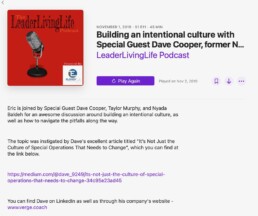
Eric is joined by Special Guest Dave Cooper, Taylor Murphy, and Nyada Baldeh for an awesome discussion around building an intentional culture, as well as how to navigate the pitfalls along the way.
The topic was instigated by Dave’s excellent article titled “It’s Not Just the Culture of Special Operations That Needs to Change”, which you can find at the link below.
https://medium.com/@dave_9249/its-not-just-the-culture-of-special-operations-that-needs-to-change-34c95e23ad45
You can find Dave on LinkedIn as well as through his company’s website – www.verge.coach
RF Episode 14 David Cooper: Setting the Tone

David Cooper a former Seal Team Six Command Master Chief. He is the founder of Verge, a boutique coaching and consulting company whose mission blends the profound experiences and lessons learned from the SEALS with concepts gleaned from complex systems science. His 25-year career is marked by numerous awards and achievements that include a Silver Star and 6 Bronze Stars. He is a devoted husband, and proud father.
EcoSystems: What the Navy SEALs Can Teach You About Building Successful Teams
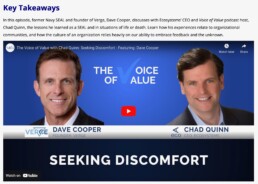
In this episode, former Navy SEAL and founder of Verge, Dave Cooper, discusses with Ecosystems’ CEO and Voice of Value podcast host, Chad Quinn, the lessons he learned as a SEAL and in situations of life or death. Learn how his experiences relate to organizational communities, and how the culture of an organization relies heavily on our ability to embrace feedback and the unknown.
10,000 Swamp Leaders: A Navy SEAL Who Swims Against the Current

017_Dave Cooper: A Navy Seals Who Swims Against the Current. Dave Cooper brings unique experiences to any conversation about leading. For twenty-five years, Dave was deployed to Bosnia, Yemen, Somalia, Afghanistan and Iraq. It was on these battlefields that Dave learned to create the conditions for team effectiveness based on candid “after action reviews” that challenge all members of the team to reflect on the individual and team performance. His four favorite words: “I screwed that up.”
Not a guy to stand down, Dave has moved on to study complex human systems and the power of storytelling. His mission today is to help teams and organizations tell a better story to all stakeholders by having greater awareness of complex systems we work inside.
Dave is also featured in the best-selling book The Culture Code, by Dan Coyle.
Initial Conditions: Your Onboarding and Integration Process

I remember one of my first classes at Oxford. I sat enthralled while Professor Boulton (Embracing Complexity) lectured us on the abiding concepts of complex adaptive systems (CAS). As a former USN SEAL and budding molecular biologist (at least in my youth), I knew a bit about complexity, at least enough to say, “It’s all very complex.” But what Professor Boulton offered was new; it was exciting. It was deep and seemed to get at the essence, the marrow, of what this welter of existence was all about.
I approached her after class as any good former SEAL would—sheepishly. I managed to say that I enjoyed her lecture and that complexity, as a discipline, had fascinated me for some time. Combat is, after all, rather complex. But I’d always seen it as more of a metaphor, I told her. She looked up at me, patted me on the shoulder, and said, “It’s reality. Get used to it.”
The memory of that encounter still makes me chuckle. But Professor Boulton was right: the world is complex, and I’ve gotten used to it.
And in that world of complexity, we tend to stick, ironically perhaps, to a few simple concepts to explain what we mean by complexity and complex adaptive systems, like the fact that complex systems (our bodies, our companies, our planet, “and beyond”) are systemic. We are interconnected, interdependent, synergistic—the sum of our parts times a whole lot more.
Complex systems are also path-dependent, meaning history matters. Where we came from matters because it has a say in where we’re headed. It gets a vote. Our history, like our genetic history, to some extent fashions our trajectory into the unknown. But history isn’t deterministic, nor are your genes. The timing and sequence of events, life’s avalanches and earthquakes, that come down the pike and bash into our historical patterns of thinking and acting (i.e. the way we’ve always done it)—this interaction of current events and past habits shapes our future, for our planet as well our companies, our bodies, our minds, and our cells. These systems are multi-scalar, too. What happens at one level, unlike Vegas, doesn’t stay there but occurs in a similar fashion at numerous levels, from the infinite to the infinitesimal.
And complex systems are emergent. Astonishing features seemingly pop into existence and fundamentally—and qualitatively—change the nature of a system. Stuff happens. Emergence renders for us an uncertain world, not random, not chaotic, but not predictable either. Just up in the air. To fully recognize and come to terms with this aspect of complexity is to embrace humility. If we’re honest with ourselves, our elegant solutions are rarely elegant for long. And sometimes the best we should hope for is a workable solution, even a clumsy one.
And change within a complex system, at least radical change, is episodic. It is true that we are constantly changing, always in the process of becoming, never fixed. But the significant changes wait for tensions to build up and then the system tips and is forever altered, its equilibria punctuated and unable to turn back. Hard to un-bake a cake no matter how hard the pull of nostalgia.
Systemic, path-dependent, emergent, and episodic— c’est la complexité. Such is complexity.
But I left out sensitive. Complex systems are also sensitive—to both local context and initial conditions (some equate the two). The way the future unfolds is not just related to our history, but to the myriad features and relationships, the interconnections and interdependencies, in our local environments. Think of this initial context (or conditions) as a substrate: if it is dense in nutrients and opportunities, the population stands a good chance of flourishing. If not, well, then the population doesn’t stand a good chance.
Your onboarding process for your company is your initial condition for your new employees and execs, or one of them anyway. To what degree do you set the conditions to increase their odds of flourishing, and to what degree do your new hires fend for themselves? For many, onboarding is an afterthought. The new guy gets shown around and then he or she is on their own. These companies view onboarding the same way the Spartans looked at the Agoge. You have to fight to survive. Battle tested, bruised and beaten, you join the ranks of the elite. Welcome to the club.
Sounds cool to some, I suppose. Until you consider where the Spartans are today.
We refer to that initial condition inside organizations as “onboarding and integration.” By phrasing it that way, it hints at the importance of socialization. It’s not only about welcoming someone to the team, but it’s also about integrating them into the fabric of the cultures (yes, plural) of your organization. It’s about starting them off not only on the right foot but putting them, first and foremost, on the right path, the right trajectory, to success. When you recognize how deeply interconnected and interdependent we are in our teams and organizations, in our worlds, then you grasp the extent to which what one of us does affects us all. The onboarding and integration process marks the beginning of this awareness for many: Here’s how I create value for you, and you for me.
We can give you the information to build a proper onboarding and integration program, and then drop the mic and walk away. A lot of consulting firms can do that—a lot actually do. But such initiatives likely won’t work, at least not for long. Our mission is to give you that information—for free. And then we partner with you, using our knowledge of complex systems and how they change, adapt, and thrive, and our understanding of coaching and the psychology of goal-setting and goal-flourishing to help you, with all of your knowledge and experience, build a program that will make the Spartans wake up in their graves and take notice.
BCLD,
Dave
Shaping and Constructing Culture: aka Leading in Complexity

You’ve heard this before, I’m sure: “Changing culture is the hardest thing you’ll ever do.” Aside from the fact that such a statement is debatable, it does beg the question: What even is “culture”? How do we define it? Do we accept the biologist’s definition, the sociologist’s, or the anthropologist’s? Take your pick; I like them all. But if you pull out what’s similar and what’s generally agreed upon in most of these definitions, you’re left with a workable definition of culture, something you can use: culture is a group’s shared and integrated beliefs, values, assumptions, behaviors, and material objects (or artifacts). Culture, as a form, is a pattern of relationships between and among people in a group.
You can do the same thing with leadership, by the way. There are 90-some-thousand books out there on leadership, yet no one, neither business gurus, academic icons, nor military gods, can agree on a definition. I suspect there’s a good reason for that, though those authors seem not to know it. For one, leadership is highly contextual. And what counts as leadership in one context might not in another. The command-and-control leadership philosophy backed by government bureaucracies and their armies the world over would likely prove an abysmal failure in a fleet-footed business bent on generating, not consuming, capital.
Because contexts matter and are continually shifting and changing, like Heraclitus’s river, what counts as leadership will also have to shift and change (although I contend strong character should remain a commonality). It’s for that reason that leadership will always resist being precisely defined. But we know this: leadership from a position of character involves influence, occurs in groups of people, and is aimed at striving, struggling, and even fighting in some respects, to achieve the group’s shared goals.
Notice that nowhere in those ingredients for leadership is listed rank or position or title. They are indeed tools of influence, but they are not in and of themselves leadership. And if they are your only tools, good luck. Best to go work for the government.
What interests us, though, is the nexus between culture and leadership. And that nexus falls squarely on one word used in both descriptions: group.
The group is both the culture and the leaders (yes, leaders). Culture influences leaders, just as leaders, to include those with and without titles (and it’s important to understand that), can and should influence culture. And those leaders should influence the culture in what direction? Toward the achievement of its shared goals, naturally.
Viewed through the lens of complexity, culture and leadership (and strategy and performance as well) are not separate entities but form the warp and weft of a single integrated organizational narrative, a tapestry, a web even, a story of who the organization is, where it’s been, and where it’s headed. And both are emergent properties of their local context. Yes, you heard that right. You can literally do nothing, and yet both of these psycho-social phenomena will arise unbidden. Groups form, and out of those interrelated and interconnected groups culture and leadership comes forth. If you’re fine with leaving the attributes of these powerful phenomena to chance, though, then read no further.
But to pull on just one of those emergent threads for a moment, leadership is the primary tool, skill, process, and system not only to shape a high-performing culture but to actively construct the vessel in which that culture is contained and in which it flourishes. And that in a word is an awesome responsibility.
In our minds, a high-performing culture is synonymous with an adaptive culture. And it is the leaders’ (plural) responsibility to construct that culture, monitor it, and, when the leaders feel they are on the right path, to jealously guard that culture against all intruders foreign and domestic (to borrow the language of defending the constitution).
To do that, fill your organization with some hearty proactive problem solvers, particularly those who feel strongly that the problems they face are best solved by committing to a search for truth through spirited dialogue. It’s learning that emerges from the discussions and productive conflict, and it is to learning that you must commit. You might not celebrate failure, but you have to do more than tolerate it; you have to learn from it, and to do that you’ll need to ensure that feedback, to include the good, the bad, and the ugly, is the coin of the realm. (Incidentally, honest, bottom-up feedback is what’s missing in the command-and-control style of leadership.)
On top of that, adopt a favorable view of human nature—or at least a positive view of the people in your organization. Get this: people generally set out to do good—they want to do good—and they can and will change if you create a psychologically safe place for them to do so. But don’t just adopt a favorable view of people, root out those who don’t harbor that same view. They will only, in some subtle ways, “train” their subordinates and peers, and perhaps their leaders as well, to display the kinds of poor traits they accuse people of in the first place. This particular kind of negativity is insidious, and there’s no room for it in a culture set on reaching the stars.
Next, add a healthy dose of optimism to your organizational diet. Put it in your morning coffee. (Everybody else seems to have a recommendation for what goes in your coffee these days, optimism is mine.) I’m not saying you should become a Pollyanna, not at all. Optimism simply means that the team believes they can manage and even influence their internal and external environments—at least to some extent—and that in the face of change, even radical change, they can remain resilient and even reinvent themselves if necessary.
Remember, too, that while history matters, and that while living in the moment is a powerful personal practice, you must orient your teams toward the future. To do that, commit to open and truthful communications. Cast off the old communication wheel, where subordinates communicate with the leader but not with each other, and create a communication web where everyone can, at least in theory, talk freely with everyone else. Such a practice affords many things, not the least of which is an ability to anticipate events on the horizon, both those that pose as threats and those that pose as opportunities. To not only survive in a complex environment but to succeed in it, to flourish, the quality and quantity of interactions inside an organization will directly correlate to engagement, innovation, and performance.
And if you can commit to that last piece, which isn’t easy, that also means you have to commit to diversity. You have to go all in. And I’m not talking solely about a healthy mix of men and women and a blend of ethnicities. That’s important, but I’d encourage you to go deeper and expand your notion of diversity and what it is. Go beyond the color of skin and sex and bring together people with different skills sets, different levels of education, and different cultural backgrounds. Sic that group on the issues that confront you right now. Why? Because diverse people see and interpret the world in diverse ways—and cognitive diversity is a wonderful thing. If you can integrate and weave together into your organizational narrative the threads of their insights, you stand the chance of creating solutions that are far more powerful than what any one person (you for instance) could have dreamed up, or far more powerful than what any homogenous group (the exec team or the marketing team) could have summoned.
Lastly, people in high-performing, adaptive and sustaining cultures understand that the world is only growing in complexity. Swear off the traditional, linear, causal view of the marketplace (and the world) in favor of systemic thinking and complex mental models that boost learning and performance. Think of your organization like your brain. Your people are your neurons (all 85 billion of them!), each connected to scores of their brother and sister neurons, all interconnected and interdependent, and all with the ability to change and adapt. What might emerge if you were actually to create such an organizational model? Try consciousness.
If you want to lead, then this is your charge.
BCLD,
Dave
